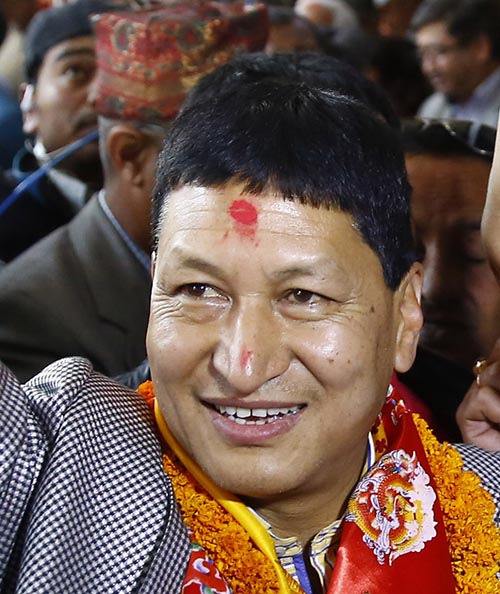Kathmandu to become smoke-free soon, claims Mayor Shakya
Kathmandu, December 14
Kathmandu Metropolitan City Mayor Bidhya Sundar Shakya has said that the metropolis will be developed into a smoke-free city by the end of 2020.
He said KMC would be developed as smoke-free since it had become part of the Partnership for Healthy Cities, a global network of 70 cities committed to saving lives by preventing non-communicable diseases such as cancer, and diabetes, and injuries.
“Improving public health requires bold action,” said Mayor Shakya at a programme organised in Kathmandu yesterday. “We are proud to be part of this group of cities working to ensure longer and fuller lives for people. Through PHC, our efforts in this area will have even greater impact. We are implementing a global blueprint for effective urban health.”
“The road to a healthier world runs through cities. Major portion of the world population now lives in urban areas, so cities have to implement meaningful policies,” said Dr Kelly Henning, who leads the public health programme at Bloomberg Philanthropies. “PHC unites mayors who are committed to action. With its expansion to 70 cities, collectively we are preventing millions of untimely deaths from NCDs and injuries and protecting the health of generations to come.”
A recent study shows that prevalence of tobacco use in adults is 68.4 per cent in rural and 37 per cent in urban areas of Kathmandu. Mayor Shakya has committed to developing KMC as a smoke-free city by December 2020. NCDs and injuries are responsible for eight out of 10 deaths globally. The additional cost per person to implement key NCD policies in low-and lower-middle-income cities between now and 2030 is USD 1.27, while road traffic injuries already cost most countries three per cent of their gross domestic product. Through this partnership, cities commit to one of 14 interventions that address the risk factors causing NCDs and injuries, such as implementing smoke-free laws that protect residents from second hand smoke, restricting sugary drinks and junk food advertising or creating safe urban cycling routes.






